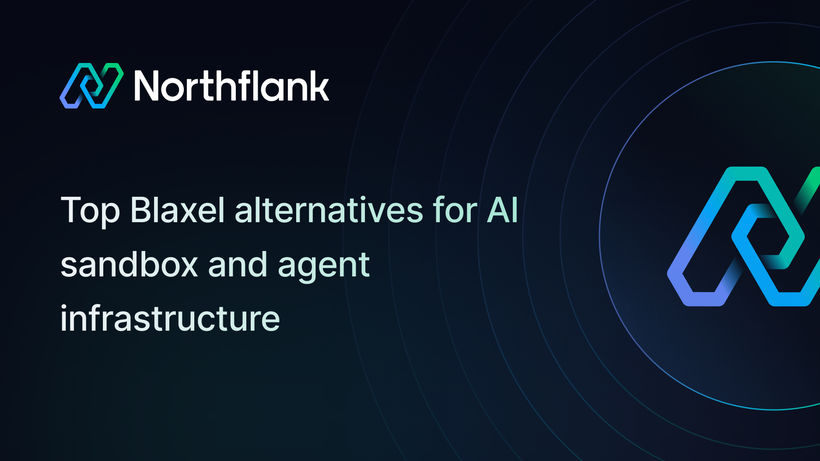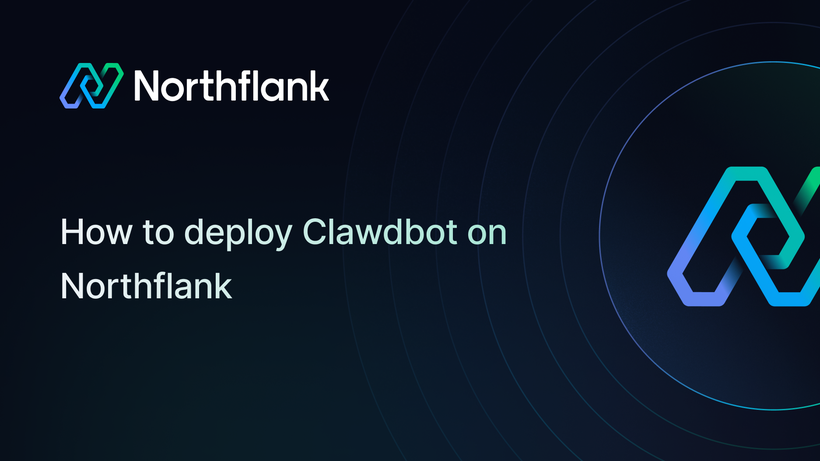

Alternatives to Depot's remote agent sandboxes
When you're building applications with AI coding tools like Claude Code, you need reliable development environments that don’t start from scratch every time.
Depot recently launched remote agent sandboxes that provide persistent cloud environments with Git integration and session sharing.
These sandboxes move Depot closer to the secure runtime category, but they’re designed for productivity and persistence with Claude Code rather than hardened security for untrusted workloads.
This article covers the top alternatives to Depot's remote agent sandboxes, comparing them across security isolation, persistence capabilities, language support, and production readiness.
Depot’s remote agent sandboxes add persistence and Git integration for Claude Code, but are limited to async-only sessions, containers (not microVMs), and single-agent support. Their focus is convenience, not airtight security.
Top alternatives:
- Northflank: Production-grade microVMs with unlimited persistence, any language support, and enterprise features (MFA, audit logs)
- GitHub Codespaces: Native GitHub integration with preconfigured containers, limited to GitHub ecosystem
- Modal: Python-optimized for ML workloads with GPU support, serverless model only
- E2B.dev: Purpose-built for AI agents with Firecracker isolation, short session limits
- Vercel Sandbox: Fast Firecracker microVMs with 45-minute execution limit
Depot is useful for Claude Code workflows where async-only execution is fine. For production applications requiring robust security, multi-language support, or persistent environments, Northflank offers the most comprehensive solution with proven scale (2M+ microVMs monthly in production).
Depot’s remote agent sandboxes are isolated container environments for running Claude Code agents in the cloud.
Each sandbox includes:
- 2 vCPUs and 4 GB RAM
- Startup times under 5 seconds
- Persistent filesystems
- Git integration for commits and pull requests
Pros
- Solves the “starting from scratch” problem in CI
- Fast startup and persistent state
- Git built-in
Cons
- Claude Code only
- Async sessions, no interactive dev
- Requires Depot UI for monitoring
- Isolated containers, suitable for Claude Code productivity but not designed as hardened runtimes for untrusted, multi-tenant workloads.
Pricing
- $0.01/minute, per-second billing
- Shuts down when agents exit
- Included on all Depot plans
In short: Depot improves developer productivity with Claude Code but isn’t built for secure, multi-tenant runtimes where untrusted code must be isolated.
Sandbox environments are crucial when:
- Running AI-generated code from Claude Code, GitHub Copilot, or other assistants
- Isolating user workloads in multi-tenant applications like online IDEs or bootcamps
- Reviewing pull requests in clean, disposable environments
- Executing untrusted code safely in coding challenges, educational tools, or SaaS platforms
The common thread: environments must stay isolated, persistent when needed, and production-ready for untrusted or AI-generated code.
| Platform | Isolation method | Language support | Persistence | Starting price | Enterprise ready |
|---|---|---|---|---|---|
| Northflank | Kata Containers, gVisor, Firecracker | Any language/runtime | Unlimited | $0.0038/hr | MFA, audit logs, RBAC |
| Depot | Isolated containers | Claude Code only | Session-based | $0.01/min | Limited enterprise features |
| GitHub Codespaces | Containers | Any language | Session-based | $0.18/hr | Enterprise GitHub integration |
| Modal | gVisor containers | Python only | Checkpointing | $0.192/core/hr | Limited enterprise features |
| E2B.dev | Firecracker microVMs | Python, JavaScript | 5-10 minutes | $0.10/hr | No enterprise features |
| Vercel Sandbox | Firecracker microVMs | Node.js, Python | 45 minutes max | $0.128/hr | No enterprise features |
If you need different capabilities beyond Depot's Claude Code focus, here are the main alternatives to consider:
Northflank runs over 2 million microVMs monthly, in production. We contribute to Kata Containers, Cloud Hypervisor, QEMU, and more. Our platform supports bring your own cloud and runs securely in your VPC, with several companies using Northflank to run untrusted, multi-tenant workloads at scale.
Key advantages over Depot:
- True production scale: Unlike Depot’s Claude Code focus, Northflank supports secure runtimes for any codegen tool, offering microVM-backed containers that combine container-like performance with VM-grade security.
- Multiple isolation technologies: Firecracker, Kata, gVisor, Cloud Hypervisor - flexibility across AWS, GCP, Azure, or bare-metal.
- Persistent and flexible: Sandboxes remain alive until terminated, unlike time-limited environments.
- Enterprise-ready: MFA, audit logs, RBAC, and compliance features built in.
Northflank's secure runtime advantage
Unlike standard containers that share the host kernel, Northflank utilizes microVM-backed isolation (Kata Containers, Cloud Hypervisor) in production, running millions of workloads monthly within Kubernetes. This ensures VM-grade security with container-grade workflows.
Northflank pricing
- Free tier: Generous limits for testing and small projects
- CPU instances: Starting at $2.70/month ($0.0038/hr) for small workloads, scaling to production-grade dedicated instances
- GPU support: NVIDIA A100 40GB at $1.42/hr, A100 80GB at $1.76/hr, H100 at $2.74/hr, up to B200 at $5.87/hr
- Enterprise BYOC: Flat fees for clusters, vCPU, and memory on your infrastructure, no markup on your cloud costs
- Pricing calculator available to estimate costs before you start
- Fully self-serve platform, get started immediately without sales calls
- No hidden fees, egress charges, or surprise billing complexity
GitHub Codespaces provides hosted, container-based development environments tightly integrated with GitHub repositories and Dev Containers. It’s designed for consistent team environments and quick onboarding inside the GitHub ecosystem.
Strengths
- Native GitHub integration (pull requests, Actions, Codespaces devcontainers)
- Preconfigured container images and easy per-repo templates
- Smooth team onboarding and environment consistency
Limitations
- Tied to the GitHub ecosystem and a small set of regions
- Limited machine profiles; costs can add up at scale
- Container isolation rather than microVM-grade isolation, so not ideal for untrusted user code
Modal offers serverless, gVisor-isolated containers optimised for Python functions and machine learning pipelines, with fast cold starts and GPU (Graphics Processing Unit) options. It’s built around a function/runtime model rather than long-lived services.
Strengths
- Python-first developer experience with simple function deployments
- Fast startup and checkpointing features for iterative ML work
- GPU options for training/inference workflows
Limitations
- Python-only for function definitions
- Serverless model (no always-on, persistent services)
- No Bring Your Own Cloud (BYOC) / self-hosting; pricing can be opaque for complex pipelines
- gVisor containers rather than microVMs for isolation
If you're evaluating Modal for your AI workloads, check out our detailed comparison of top Modal Sandboxes alternatives for secure AI code execution, which provides a comprehensive analysis.
E2B.dev focuses on AI agent sandboxes with Firecracker microVM isolation and an SDK (Software Development Kit) geared toward agent workflows. It’s optimised for quick, programmatic environments rather than long-lived sessions.
Strengths
- Firecracker microVM isolation for agent execution
- Agent-friendly SDK and fast startup
- Purpose-built ergonomics for AI code execution
Limitations
- Short-lived sessions with limited persistence
- Less control over regions and underlying orchestration
- Not a full secure-runtime platform for multi-tenant production at scale
For a comprehensive analysis of E2B and its alternatives, read our article on the best alternatives to E2B.dev for running untrusted code in secure sandboxes.
Vercel Sandbox uses Firecracker-backed microVMs to run isolated workloads with simple integration into the Vercel ecosystem. It emphasises speed and simplicity for short tasks.
Strengths
- Fast microVM provisioning and simple SDK
- Fits neatly into existing Vercel workflows
- Good for short, isolated executions
Limitations
- Session limit (up to ~45 minutes) makes it unsuitable for persistent agents
- Limited language/runtime breadth compared to general-purpose platforms
- No Bring Your Own Cloud (BYOC); tied to Vercel infrastructure
If you're evaluating Vercel Sandbox, our comprehensive analysis of top Vercel Sandbox alternatives for secure AI code execution and sandbox environments covers the full range of options.
Depot’s new sandboxes bring persistence and Git integration to Claude Code agents, but remain container-based. That makes them useful for productivity, not secure multi-tenant workloads.
Northflank runs secure microVMs in production with enterprise features and persistent environments that maintain state across sessions, enabling AI agents and other workloads to run reliably.
- Security and isolation: Northflank provides VM-grade isolation with Kata Containers and Cloud Hypervisor. Depot uses containers.
- Production readiness: Northflank operates at proven scale with enterprise compliance.
- Flexibility: Northflank supports any language/runtime and multi-cloud deployment.
- Cost: Transparent pricing from $0.0038/hr, with GPU support and BYOC (Bring your own cloud) options.
Based on your specific needs, here's how to decide between the platforms:
| Platform | Best for | Key requirements |
|---|---|---|
| Northflank | Production AI applications, multi-tenant SaaS | Production-grade security, enterprise compliance, persistent sessions, multi-cloud flexibility |
| Depot | Claude Code workflows, CI/CD automation | Simple async execution, existing Depot users, short-lived sessions |
| GitHub Codespaces | GitHub-centric development, team collaboration | GitHub ecosystem commitment, repository integration, regional limitations acceptable |
| Modal | Python ML/AI workloads, inference pipelines | Python-only focus, serverless model, sub-second starts, GPU workloads |
| E2B.dev | AI agent prototyping, simple code execution | SDK-based integration, short tasks, purpose-built AI tooling |
| Vercel Sandbox | Quick prototyping, Vercel integrations | Vercel ecosystem, sessions under 45 minutes, fast Firecracker isolation |
Depot improves Claude Code workflows with persistence and Git integration, but it isn’t built as a secure runtime.
For production workloads where untrusted or AI-generated code must be isolated, Northflank provides hardened, persistent, enterprise-ready runtimes at scale.
Try Northflank for production-grade microVM sandboxes, or see other options tailored to your specific needs.
Learn more about secure runtime environments in our guides on microVMs and container isolation and secure AI code execution platforms.



